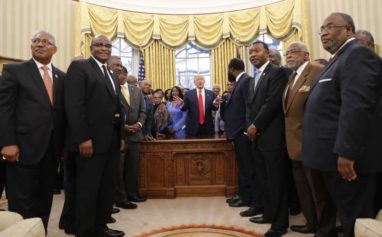
On Saturday, the President warned that students are spending too much time taking exams in the classroom, and urged educators to administer fewer and more meaningful tests, as USA Today reported. According to the White House, the proliferation of testing in the U.S. has taken far too much valuable time from learning, teaching and the promotion of creativity in our children’s schools. With this in mind, Obama has urged limiting standardized testing to no more than 2 percent of classroom time. Nationwide, the average time for eighth graders—who have the most mandatory testing–stands at 2.3 percent, or 4.2 days for the 2014-2015 school year.
“When I look back on the great teachers who shaped my life, what I don’t remember is the way they prepared me to take a standardized test,” Obama said in a video message on Facebook. “What I remember is the way they taught me to believe in myself, to be curious about the world, to take charge of my own learning so that I could reach my full potential.”
Obama said that while in “moderation, smart strategic” exams can help track progress and assist in students’ learning, he also expressed concern that the pressure teachers face in teaching for the test is detracting from children’s learning experience, and the concern parents have that the exams are taking up too much time.
‘‘Learning is about so much more than just filling in the right bubble,’’ he said. ‘‘So we’re going to work with states, school districts, teachers and parents to make sure that we’re not obsessing about testing.”
Obama added that tests should be “worth taking,” time-limited and provide a “clearer picture”’ of a student’s progress. Admitting that his own administration has contributed to the proliferation of testing, President Obama outlined a 10-page plan with steps to assist educators in ending a form of educational assessment that is neither beneficial to students nor teachers, and is overly burdensome.
“The fixation on high-stakes testing hasn’t moved the needle on student achievement,” Randi Weingarten, president of the American Federation of Teachers said in a statement. “Testing should help inform instruction, not drive instruction. We need to get back to focusing on the whole child — teaching our kids how to build relationships, how to be resilient and how to think critically. It’s a big deal that the president and the secretaries of education — both current and future — are saying that they get it and are pledging to address the fixation on testing in tangible ways.”
According to a PDK/Gallup poll from this past summer, 64 percent of the 4,500 adults questioned said there is too much emphasis being placed on standardized testing, while 19 percent thought the amount of testing is about right.
The announcement from the President comes as Congress plans to draft a replacement for the No Child Left behind Act. As Jameson Parker wrote in Addicting Info, Obama’s approach reflects a “holistic, teacher-inspired, and child focused” policy. No Child Left Behind is one of the worst chapters of the Bush administration, as it has caused serious damage to the nation’s educational system. This obsession with test scores, he noted, was a recipe for disaster, as this has led to teachers approaching teaching the same way students may approach learning, which is that if it does not appear on the exam, it is not worth learning.
In her book, The Tyranny of the Meritocracy, Professor Lani Guinier discusses the close relationship between standardized testing and family income. As colleges use the SAT or ACT to filter students for college admission–although such tests have no predictive value in assessing a student’s potential for success in college–students who are not affluent, particularly students of color, are disproportionately excluded.
“This is the testocracy in action, an aristocracy determined by testing that wants to maintain its position even if it has to resort to fabrication. What is it they are so desperate to protect?” Guinier asks in her book. “Close to eight hundred colleges have decreased or eliminated reliance on high-stakes tests as the way to rank and sort students. In the current environment, however, moving away from merit by the numbers takes guts. The testing and ranking diehards, intent on maintaining their gate-keeping role, hold back and even penalize administrators who take such measures.”
Guinier argues that collaborative problem solving, independent thinking, and creative leadership are the skills necessary for meaningful participation in a democratic society. However, success in the testocracy does not value these skills.
A recent survey from the Council of the Great City Schools found that the average student takes 112 standardized exams throughout his or her school career.

